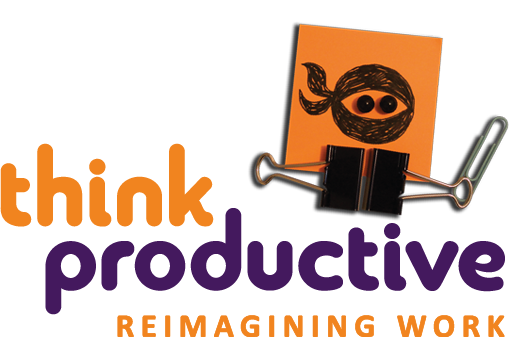Time management training is sometimes approached in a purely cerebral way with extensive flow diagrams and theories discussed at length. I have however seen this type of business training fail again and again to translate into lasting change. Better time management courses like Getting Things Done also stress practical implementation in their training. I would go one step further and suggest that the whole person needs to be considered, not just technology and systems but also culture, emotions and the body. In this article I will address some of these more unusual aspects of productivity (I lead a business training provider specialising in this perspective).
Productivity and Time Management – Body Basics

Let’s go back to basics – the most important way to manage your time is not to die. The most common killers of senior managers and leaders in the Western world are all stress and lifestyle related (e.g. heart disease) so maintaining physical and psychological health is a must. I actually find it hard to understand why companies tolerate staff who drink excessively, eat junk and don’t exercise as these factors will certainly make them less productive. Someone may have read all the time management books in the world but if they keep having sick-days it will make no difference. Get a good night’s sleep, eat your vegetables, go for a walk…This is all the stuff your mum told you about when you were a kid so just get on with it, no excuses.
Centring – Manage Yourself First
Being centred is crucial for time management. Most of my clients already understand cognitively Covey’s “urgent and important” for example, it’s simple enough to get at a head level and they are usually smart people, but this is not enough. Why does a leaders or manager who knows that they have better things to do spend time swotting urgent “flies” as they arise? A major problem is that people are often in a physiological state of heightened arousal (“fight or flight”) that means making informed intelligent decisions is hard. Learning how to manage this and “get themselves together” physically, mentally and emotionally (they are intertwined) is crucial for effective time management and productivity. Some physical grounding and “centring” practices are a simple and quick way to do this. Meditation and mental training is also highly beneficial to training attention – not just knowing about “a mind like water” as David Allen would say but actually developing one through practice.
Emotional Time Management Blocks
Another embodied time management issue is the emotional blocks people have regarding most important aspects. Most people I meet who are overwhelmed are not so because they do not have the right e-mail system or what-not, they are stressed out and breaking promises because they can’t say no or ask for help (sometimes called delegating). These involve deep seated embodied emotional issues – some people have lived in a body of yes or “I’ll do it myself” most of their lives and simply reading Brian Tracey won’t change this. Our bodies predispose our actions and productivity.
Productivity, Time Management and Spirituality

Mindfulness – being aware of the present moment – is critically important for time management and not just for Buddhists and other meditators. Traditional time management can focus on planning but it is being present to here and now that lets one avoid the myriad distractions of the modern e-world and focus to what matters. This level of awareness is essentially a demanding form of spiritual practice.
Another issue not addressed by many corporate time management courses is doing vs. being. If time management is all about running around doing things and not “just being” burnout will result. I am prone to this one myself as someone trained in the traditional dark arts of productivity and it causes problems. Sitting in nature doing nothing for example can be just the thing a busy executive needs to look after themselves and boost their productivity! It can also help them make decisions about how to spend their time with their “gut” rather than just their head.
Time management and productivity involve not just planning and logical decision making but also intuition, feeling and sensing the body. Someone using all these aspects of themselves to make decisions and look after themselves will not only get more done but stop make themselves sick or go insane in the process. I believe that truly effective time management training courses takes flow and direction, feeling and thinking, doing and being into account equally.

Mark Walsh leads business training providers Integration Training – based in Brighton, London and Birmingham UK. Specialising in working with emotions, the body and spirituality at work they help organisations get more done without going insane (stress and time management training), coordinate action more effectively (team building and communication training) and help leaders build impact, influence and presence. In his other spare time he dances, meditates, practices aikido and enjoys being exploited by two cats.

I want to thank you for the endeavors you have made in publishing this article. I am trusting the same best work from you in the future as well
I liked reading your blog ~ thanks for posting such awesome content.
I truly enjoyed your article. It was very educational and useful. I will return to check on upcoming articles
I love to learning more on this topic if possible, as you gain expertise, would you mind updating your blog with more information?
I actually like this blog, make sure you don’t stop!